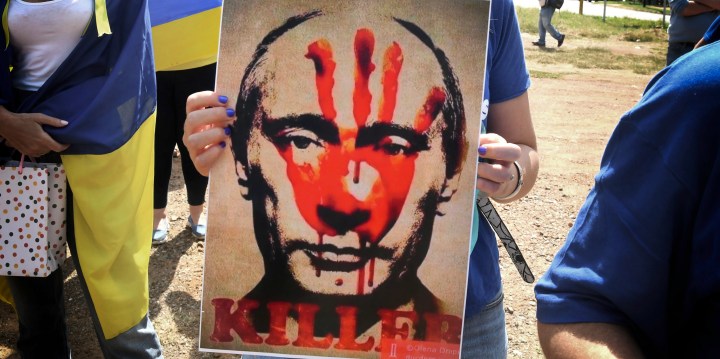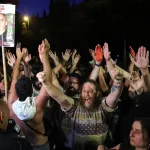WAR IN EUROPE OP-ED
Scenarios for Ukraine: negotiated settlement, military victory or protracted guerrilla war

Whatever the outcome, Russia is bound to emerge as a reduced pariah state in the society of civilised nations given its legacy of inhumane war crimes against the people of Ukraine and its ruthless flouting of international law.
So, how will this end?
Russia invaded Ukraine months ago by brutal military force. The question that many are asking now is, what will be the likely outcome of this war? The realist theory of Kenneth Waltz, an eminent scholar of international relations, may offer insights into the endgame for the Ukrainian war.
Waltz employed two concepts, i.e. anarchy and hierarchy, to understand interstate war. Anarchy is the absence of an international government to make and enforce its decisions, including ending wars. Hierarchy means that states are the dominant actors on an international level.
This does not discount the role of non-state actors such as corporations or international organisations. However, states have the power to enforce decisions that non-state actors lack. In terms of power, all states are not equal.
In the 19th century, a multipolar balance of power dominated, i.e. England, Russia, France, Prussia and Austria. After World War 2, the world was dominated by the US-USSR bipolar system. In the interregnum after the collapse of the USSR, a unipolar system, dominated by the US, emerged.
Currently, the balance of power may be described as a loose multipolar system in which the US is noticeably losing capability with the rise of China, Russia and the European Union as major actors. According to Waltz, a bipolar system is more stable than a multipolar system. There is an inherent difficulty to balance power if more than two states (say four or five) gain power.
With this brief background, let’s turn to the potential outcomes of the Ukrainian war. We suggest two possible endings: 1) A military victory for either Russia or Ukraine; or 2) Russia will sue for peace after securing control of Ukrainian territory.
According to Waltz, major powers (Russia) are likely to defeat weaker powers (Ukraine). Globalpower.com ranks Russia as the second most powerful force in the world while Ukraine is ranked much lower at 22. Given the military superiority of Russia, it is unlikely that Ukraine will be victorious.
A direct conflict between Nato and Russia is unlikely. The US’s decision not to impose a no-fly zone over Ukraine and Nato’s decision not to “put boots on the ground” effectively ended speculation of a direct conflict. But what about Nato’s support for Ukraine and Western sanctions to undermine the capability of Russia?
Waltz also cautions that capabilities must match goals to defeat a military aggressor. The Ukraine Support Tracker of the Kriel Institute in Germany is sceptical as to whether foreign military support will provide an edge to Ukraine. Current military support for Ukraine falls short in matching Russian military capability. The gap between commitment and actual delivery is obvious.
In the case of the US, the Nato leader, less than half of military commitments to Ukraine have been delivered. Weapons supplied are often old and obsolete. Training Ukrainian soldiers in the use of advanced modern weapon systems by the UK, US and other Nato countries is a slow and expensive process and may be “too little, too late”.
Waltz also cautions that capabilities must match goals to defeat a military aggressor. In the proxy war in Afghanistan, for example, the US supplied shoulder-fired anti-aircraft missiles to Mujahideen guerrillas to defeat the USSR and its client Afghanistan government. This strategy was effective. However, the war in Ukraine is primarily a conventional war and Ukraine would need more sophisticated artillery weapon systems to counter Russian advances.
Waltz also argues that military victories may not produce political control. Russia is pursuing the same strategy in Ukraine as in Chechnya: demolish cities and infrastructure, and destroy the economy. After victory, Russians rule through fear and repression, enforced by a locally, co-opted authority.
In Chechnya, it resulted in a protracted guerilla war against Russian occupiers. A similar outcome may occur in Ukraine, even after a Russian military victory or a negotiated peace deal.
Economic sanctions imposed by Nato and other countries against Russia will likely fall short in forcing Russia to retreat from Ukraine. According to the Peterson Institute for International Economics, economic sanctions only achieve their goals in 13% of the cases. Sanctions are not particularly effective against major powers.
In the current sanction regime against Russia, continued trade relations with China provide an easy way for Russia to circumvent sanctions and economic isolation. According to Waltz, dependence undermines the effective utility of power in international relations. The energy dependence vulnerability of Nato members, such as Germany, Italy and Turkey on Russia means that Russia’s power in global energy markets remains strong.
Although the protection of sovereign integrity against foreign aggression is regarded as a basic rule of interstate relations, history strongly illustrates that major power military aggression against weaker states favours the major power. Examples include: Russia’s 2008 occupation of the South Ossetia region in Georgia which continues today; China’s occupation of Tibet after the Korean War as well as its annexation of a portion of Nepal; and Russia’s 2014 annexation of Crimea.
US mediation has produced negotiated settlements in lesser wars, for example, the Oslo Agreement to end hostilities between Israel and the Palestine Liberation Organisation; and the Dayton Agreement to end conflict between Bosnia and Herzegovina.
Current US leadership is the weakest in decades and expected mediation in Ukraine will likely come from European leaders — but a negotiated settlement in Ukraine will likely not end the issue of Russian imperialism in Eastern Europe. The failure of the Minsk Agreement (2014-15), negotiated between Germany, France and Russia, did not solve the Crimea issue or prevent the Ukrainian War.
To summarise: The probability that Russia will achieve a military victory is much higher than the chances of Ukraine being victorious.
Is a negotiated settlement a probability as an endgame? Waltz argues that survival is a state’s most basic foreign policy goal. Russia and Ukraine have engaged in numerous rounds of negotiations to find a diplomatic way to end the war.
Political leaders, among others, the president of France, the prime minister of Italy, the Pope, and the BRICS states have called for a diplomatic rather than a military solution to the war in Ukraine. These efforts have failed. The status of Crimea is at the heart of the diplomatic failure.
Waltz argues that power rather than morality/justice will determine the outcome of wars — in World War 2, the Allies defeated the Axis not because justice was on their side, but rather, because of their superior military and economic capabilities.
If Russia achieves a military victory, Ukraine will cease to exist as a state, and Russia will dictate peace negotiations. This outcome is called a distributive outcome or a zero-sum game (one party wins, and the other party loses). At present, a window remains available to achieve an integrative (win-win) outcome via negotiations. Russia will achieve limited rather than absolute goals, i.e. control of captured areas and international acceptance of its control of Crimea. Ukraine will survive as a state, albeit with a smaller territorial footprint. War-averse major powers will likely accept a negotiated settlement.
However, whatever the outcome of the war, Russia is bound to emerge as a reduced pariah state in the society of civilised nations given its legacy of inhumane war crimes against the people of Ukraine, its ruthless flouting of international law and of course, the staggering cost of the war.
To summarise: A negotiated settlement between Russia and Ukraine, rather than a military victory, is probably the most likely endgame in the Ukrainian war. DM
Jay van Wyk is Emeritus Professor in the Management Department of Pittsburg State University, US. Gerrit Olivier is the former South African Ambassador to Russia and Kazakhstan and Emeritus Professor at the University of Pretoria.




















 Become an Insider
Become an Insider
Comments - Please login in order to comment.